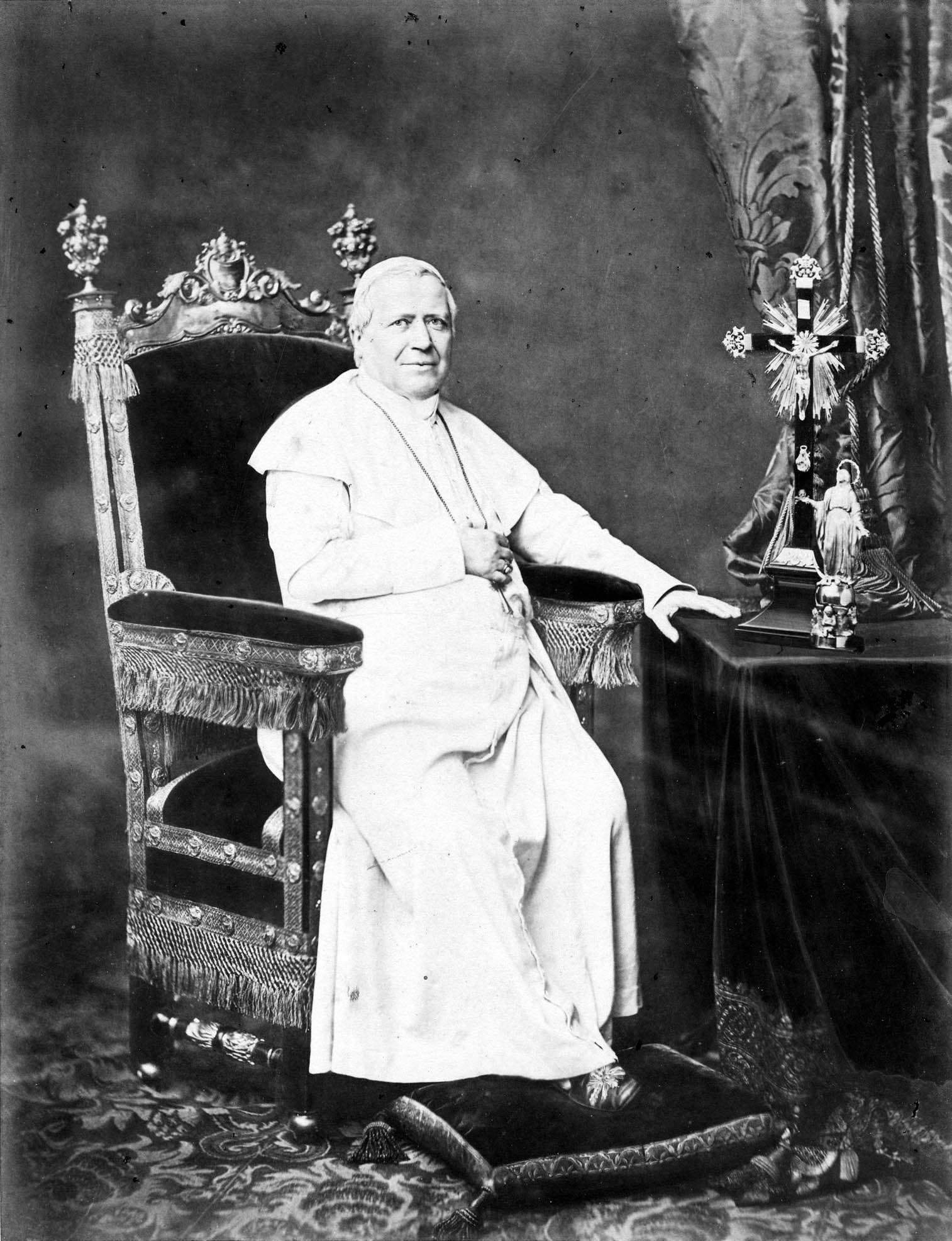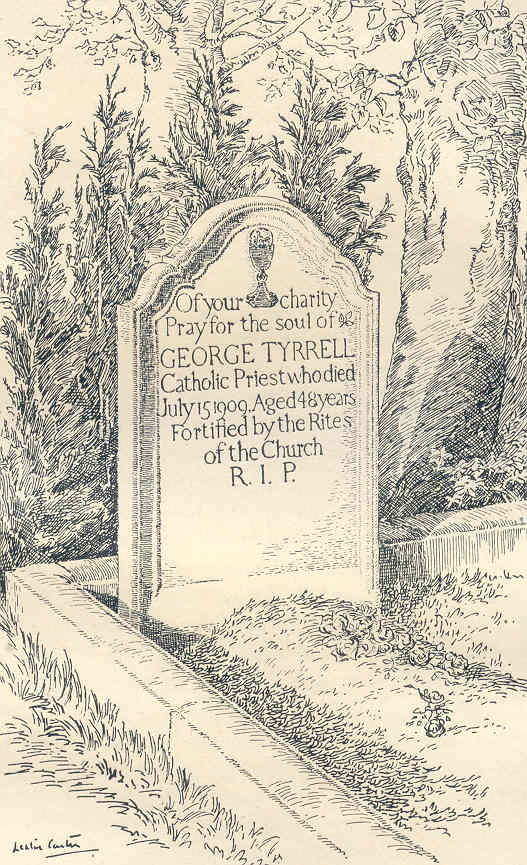|
Lamentabili Sane
''Lamentabili sane exitu'' ("with truly lamentable results") is a 1907 syllabus, prepared by the Roman Inquisition and confirmed by Pope Pius X, which condemns errors in the exegesis of Holy Scripture and in the history and interpretation of dogma.''The Scripture documents: an anthology of official Catholic teachings'' by Dean Philip Béchard 2002 page 183 The syllabus itself does not use the term 'modernist', but was regarded as part of the Pope's campaign against modernism within the Church. The document (items 46 and 47) specifically affirmed that the Sacrament of Reconciliation was instituted by Jesus himself, as in the Gospel of John . Published in July 1907, ''Lamentabili'' was soon to be complemented by the more comprehensive encyclical '' Pascendi Dominici gregis'', which came out in September 1907 and had been prepared in a small circle around the Pope, whereas the 1910 antimodernist oath Sacrorum Antistitum was again compiled by the Holy Office. Most of the condemned s ... [...More Info...] [...Related Items...] OR: [Wikipedia] [Google] [Baidu] |
Syllabus
A syllabus (; plural ''syllabuses'' or ''syllabi'') or specification is a document that communicates information about an academic course or class and defines expectations and responsibilities. It is generally an overview or summary of the curriculum. A syllabus may be set out by an examination board or prepared by the tutor or instructor who teaches or controls the course. The word is also used more generally for an abstract or programme of knowledge and is best known in this sense as referring to two catalogues of doctrinal positions condemned by the Catholic Church in 1864 and 1907. Etymology According to the Oxford English Dictionary, the word ''syllabus'' derives from modern Latin 'list', in turn from a misreading of the Greek (the leather parchment label that gave the title and contents of a document), which first occurred in a 15th-century print of Cicero's letters to Atticus. Earlier Latin dictionaries such as Lewis and Short contain the word , relating it to the non-ex ... [...More Info...] [...Related Items...] OR: [Wikipedia] [Google] [Baidu] |
Holy Office
The Dicastery for the Doctrine of the Faith (DDF) is the oldest among the departments of the Roman Curia. Its seat is the Palace of the Holy Office in Rome. It was founded to defend the Catholic Church from heresy and is the body responsible for promulgating and defending Roman Catholic doctrine. Formerly known as the ''Supreme Sacred Congregation of the Roman and Universal Inquisition''; (1908 — 1965) the ''Supreme Sacred Congregation of the Holy Office''; and then until June 2022 the ''Congregation for the Doctrine of the Faith'' (''CDF''; la, Congregatio pro Doctrina Fidei). It is still informally known as the Holy Office in many Catholic countries. ( la, Sanctum Officium) Founded by Pope Paul III in 1542, the sole objective of the dicastery is to "spread sound Catholic doctrine and defend those points of Christian tradition which seem in danger because of new and unacceptable doctrines." Its headquarters are at the Palace of the Holy Office, just outside Vatican Cit ... [...More Info...] [...Related Items...] OR: [Wikipedia] [Google] [Baidu] |
Biblical Exegesis
Biblical criticism is the use of critical analysis to understand and explain the Bible. During the eighteenth century, when it began as ''historical-biblical criticism,'' it was based on two distinguishing characteristics: (1) the concern to avoid dogma and bias by applying a neutral, non-sectarian, reason-based judgment to the study of the Bible, and (2) the belief that the reconstruction of the historical events behind the texts, as well as the history of how the texts themselves developed, would lead to a correct understanding of the Bible. This sets it apart from earlier, pre-critical methods; from the anti-critical methods of those who oppose criticism-based study; from later post-critical orientation, and from the many different types of criticism which biblical criticism transformed into in the late twentieth and early twenty-first centuries. Most scholars believe the German Enlightenment () led to the creation of biblical criticism, although some assert that its roots ... [...More Info...] [...Related Items...] OR: [Wikipedia] [Google] [Baidu] |
1907 In Christianity
Nineteen or 19 may refer to: * 19 (number), the natural number following 18 and preceding 20 * one of the years 19 BC, AD 19, 1919, 2019 Films * ''19'' (film), a 2001 Japanese film * ''Nineteen'' (film), a 1987 science fiction film Music * 19 (band), a Japanese pop music duo Albums * ''19'' (Adele album), 2008 * ''19'', a 2003 album by Alsou * ''19'', a 2006 album by Evan Yo * ''19'', a 2018 album by MHD * ''19'', one half of the double album ''63/19'' by Kool A.D. * ''Number Nineteen'', a 1971 album by American jazz pianist Mal Waldron * ''XIX'' (EP), a 2019 EP by 1the9 Songs * "19" (song), a 1985 song by British musician Paul Hardcastle. * "Nineteen", a song by Bad4Good from the 1992 album ''Refugee'' * "Nineteen", a song by Karma to Burn from the 2001 album ''Almost Heathen''. * "Nineteen" (song), a 2007 song by American singer Billy Ray Cyrus. * "Nineteen", a song by Tegan and Sara from the 2007 album '' The Con''. * "XIX" (song), a 2014 song by Slipknot. ... [...More Info...] [...Related Items...] OR: [Wikipedia] [Google] [Baidu] |
1907 Documents
Nineteen or 19 may refer to: * 19 (number), the natural number following 18 and preceding 20 * one of the years 19 BC, AD 19, 1919, 2019 Films * ''19'' (film), a 2001 Japanese film * ''Nineteen'' (film), a 1987 science fiction film Music * 19 (band), a Japanese pop music duo Albums * ''19'' (Adele album), 2008 * ''19'', a 2003 album by Alsou * ''19'', a 2006 album by Evan Yo * ''19'', a 2018 album by MHD * ''19'', one half of the double album ''63/19'' by Kool A.D. * ''Number Nineteen'', a 1971 album by American jazz pianist Mal Waldron * ''XIX'' (EP), a 2019 EP by 1the9 Songs * "19" (song), a 1985 song by British musician Paul Hardcastle. * "Nineteen", a song by Bad4Good from the 1992 album ''Refugee'' * "Nineteen", a song by Karma to Burn from the 2001 album ''Almost Heathen''. * "Nineteen" (song), a 2007 song by American singer Billy Ray Cyrus. * "Nineteen", a song by Tegan and Sara from the 2007 album '' The Con''. * "XIX" (song), a 2014 song by Slipknot. ... [...More Info...] [...Related Items...] OR: [Wikipedia] [Google] [Baidu] |
Syllabus Of Errors
The ''Syllabus of Errors'' ( la, Syllabus Errorum) is a document issued by the Holy See under Pope Pius IX on 8 December 1864, as an appendix to the encyclical. It condemns a total of 80 errors or heresies, articulating Catholic Church teaching on a number of philosophical and political questions. Reaction from Catholics was mixed, while that from Protestants was uniformly negative. The document remains controversial, and it has been cited on numerous occasions by both Catholic traditionalists seeking to uphold traditional Catholic values and anti-Catholics seeking to criticize the Church's positions. The purpose of the ''Syllabus'' was not to explain in depth, but only to summarize each error briefly and to refer to the corresponding papal documents which define and explicate in detail. These detailed documents are essential for understanding the pope's view. History On 8 December 1864, the Feast of the Immaculate Conception, the Holy See under Pope Pius IX issued the ''S ... [...More Info...] [...Related Items...] OR: [Wikipedia] [Google] [Baidu] |
George Tyrrell
George Tyrrell (6 February 1861 – 15 July 1909) was an Anglo-Irish Catholic priest and a leading modernist theologian and scholar. A convert from Anglicanism, Tyrrell joined the Jesuit order in 1880. His attempts to adapt Catholic theology to modern culture and science made him a key figure in the modernist controversy that raged within the Roman Catholic Church in the late 19th century. In the context of the anti-modernist campaign led by Pope Pius X, Tyrrell was expelled from the Jesuits in 1906 and finally excommunicated in 1908. Early life Tyrrell was born on 6 February 1861 in Dublin, Ireland. His father, a journalist, died shortly before Tyrrell was born. George was first cousin to Irish classical scholar Robert Yelverton Tyrrell. A childhood accident resulted in George eventually becoming deaf in the right ear. The family had to move repeatedly due to financial straits. Tyrrell was brought up as an Anglican and around 1869 he attended Rathmines School, near Dublin. ... [...More Info...] [...Related Items...] OR: [Wikipedia] [Google] [Baidu] |
Alfred Loisy
Alfred Firmin Loisy (; 28 February 18571 June 1940) was a French Roman Catholicism, Roman Catholic priest, professor and theology, theologian generally credited as a founder of Modernism (Roman Catholicism), modernism in the Roman Catholic Church. He was a critic of traditional views of the interpretation of the Bible, and argued that biblical criticism could be helpful for a theological interpretation of Religious text, Sacred Scripture. His theological positions brought him into conflict with the church's authorities, including Pope Leo XIII and Pope Pius X. In 1893, he was dismissed as a professor from the Institut Catholique de Paris. His books were condemned by the Roman Curia, and in 1908 he was excommunicated. Loisy's most famous observation was that "Jesus came proclaiming the Kingdom, and what arrived was the Church" ("Jésus annonçait le Royaume et c'est l'Église qui est venue." ''L’Evangile et l'Eglise''). Education Born on 28 February 1857 at Ambrières, Loisy w ... [...More Info...] [...Related Items...] OR: [Wikipedia] [Google] [Baidu] |
Sacrorum Antistitum
The Oath Against Modernism was required of "all clergy, pastors, confessors, preachers, religious superiors, and professors in philosophical-theological seminaries" of the Catholic Church from 1910 until 1967. It was instituted on 1 September 1910 by Pope Pius X in his ''motu proprio'' ''Sacrorum antistitum'' and rescinded on 17 July 1967 by the Congregation for the Doctrine of the Faith with the approval of Paul VI. The oath marked the culmination of Pius X's campaign against the theological movement of modernism, which he extensively analyzed and denounced as heretical in his 1907 encyclicals '' Pascendi Dominici gregis'' and ''Lamentabili sane exitu''. Thomas Pègues, O.P. was also influential in the anti-modernist movement within the Church. The Oath Against Modernism is still pronounced by clergy who are members of traditionalist Catholic movements, such as the Society of Saint Pius X, the Congregation of Mary Immaculate Queen, the Istituto Mater Boni Consilii. See also *' ... [...More Info...] [...Related Items...] OR: [Wikipedia] [Google] [Baidu] |
Roman Inquisition
The Roman Inquisition, formally the Supreme Sacred Congregation of the Roman and Universal Inquisition, was a system of partisan tribunals developed by the Holy See of the Roman Catholic Church, during the second half of the 16th century, responsible for prosecuting individuals accused of a wide array of crimes according to Roman Catholic law and doctrine, relating to catholic religious life or alternative religious or secular beliefs. It was established in 1542 by the leader of the Roman Catholic Church, Pope Paul III. In the period after the Medieval Inquisition, it was one of three different manifestations of the wider Catholic Inquisition along with the Spanish Inquisition and Portuguese Inquisition. Function and functioning Main function of the institution was to maintain and implement papal bulls and other church rulings, in addition to their function of administering legalistic ramifications upon deviants of Catholic orthodoxy within states that cooperated with the pope ... [...More Info...] [...Related Items...] OR: [Wikipedia] [Google] [Baidu] |



